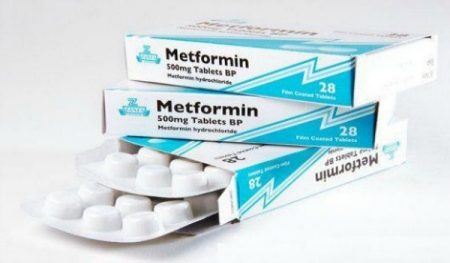GLP-1s Might Decrease the Incidence of Depression and Anxiety
Lisa O’Mary of WebMD wrote: “People taking a popular type of drug for weight loss or to manage diabetes have a lower likelihood of being newly diagnosed with depression or anxiety, according to an analysis of millions of people’s health records.
The findings were published this week by researchers from the electronic health record company Epic. Researchers looked for new diagnoses of depression or anxiety among people who started taking drugs from a class called GLP-1 agonists that can help manage blood sugar or treat obesity by mimicking hormone levels in the body that can affect appetite and blood sugar. Many people who take the drugs experience significant weight loss.
The researchers found that people with diabetes who started taking most versions of GLP-1 agonists were between 11% and 65% less likely to be newly diagnosed with depression than people with diabetes who didn’t take one of the drugs. The greatest reduction in likelihood of a new depression diagnosis was observed among people taking tirzepatide, which is sold under the brand names Mounjaro and Zepbound.”
NEW FINDINGS BY COLVIN AWARD WINNER ROGER MCINTYRE
There is a convergence of finding of the occurrence of cognitive dysfunction in diabetes, obesity, and bipolar and unipolar mood disorders. This is based on new evidence of insulin resistance in the CNS found in examination of exosomes. Insulin is neuroprotective and neurotrophic much like lithium. People on lithium do not have evidence of loss of grey and white matter that other’s with bipolar disorder who are not on lithium have. Intra-nasal insulin can improve cognition. The widely used insulin sensitizers GLP-1s for diabetes and weight loss appear to also decrease cognitive decline. The GLP-1 liraglutide improves cognition in mood disordered patients, and increases brain NAA in obesity. The GLP-1 semaglutide appears to increase motivation, cognition and overcome reward deficits. These agents could have anti-depressant and depression preventing properties which remain to be further confirmed in ongoing clinical trials.
McIntyre finds that 80% of Alzheimer’s patients are insulin resistant and the GLP-1s are being studied for this illness as well. There is also a convergence of deficits in cognition, motivation, normal mood in Alzheimer’s patients.
“Pharmacotherapy of Bipolar Depression”
Roger McIntyre gave a talk on the “Pharmacotherapy of Bipolar Depression” at the International Society for Bipolar Disorders Conference in Chicago, June 22-25, 2023
He pointed out that, contrary to the many approved agents for mania, there were few FDA-approved drugs for depression in patients with Bipolar Disorders. These approved drugs included: cariprazine (Vraylar); lumateperone (Caplyta); lurasidone (Latuda); quetiapine (Seroquel); and the olanzapine-fluoxetine combination (Symbyax). Other non-approved agents include: lithium, lamotrigine, antidepressants, MAOIs, pramipexole, carbamazepine, ketamine, bupropion+dextromethorphan, amantadine, memantine, and possibly minocycline and celecoxib. Surprisingly, more than 3,000 bipolar depressed patients have been reported to be taking ketamine and that this was not associated with the induction of hypomania or mania.
McIntyre reported on the antidepressant (AD) effects of intra-nasal (i.n.) insulin. The insulin receptor sensitizer metformin had AD effects, but only in those who converted to insulin sensitivity.
McIntyre reported on the mixed effects of the GLP-1 agonists in the prevention of depression (Cooper et al J. Psychiatric Res, 2023). This is of interest in relationship to the bidirectional relationship of diabetes mellitus and depression.
Liraglutide appeared to have an anti-anhedonia effect. Semaglutide had AD and antianxiety effects in animal models of depression.
Recent studies have explored the antidepressant effect of psilocybin. Small studies have indicated that it has rapid onset of AD effects, and, in contrast to ketamine where rapid onset AD and anti-suicidal effects are short lived, the AD effect of psilocybin may be more prolonged.
Ketamine repairs structure and function of prefrontal cortical neurons via glutamate NMDA receptor blocking action, while psilocybin and other psychedelics act via stimulating 5HT2A receptors. One single case study suggested that blocking 5HT2A receptors with trazodone could achieve a rapid onset of AD effects of psilocybin without the psychedelic effects, a very interesting finding that requires replication.
Links Between Mixed Depression, Insulin Resistance, Inflammation, and Cognitive Deficits
At the 2019 meeting of the International Society for Bipolar Disorders, researcher Roger McIntyre discussed links between obesity, diabetes, and cardiovascular problems; increased inflammation; and decreased functioning of the neural networks involved in cognition.
He and his colleagues analyzed 121 studies that included empirical research and meta-analyses. McIntyre and colleagues found that patients with higher levels of inflammatory markers have more insulin resistance and cognitive dysfunction. A meta-analysis revealed that the inflammatory markers IL-6, TNF alpha, and CRP were significantly elevated in people with bipolar disorder compared to normal controls, while IL-1B was not.
People with depression who had a few manic traits (mixed depression) were particularly likely to have insulin resistance and elevated levels of pro-inflammatory markers.
People with mixed depression have increases in inflammation and increased incidence of cardiovascular disorder. People experiencing a first episode of mixed depression who are overweight show increased signs of brain aging.
In studies McIntyre and colleagues analyzed, diabetes or pre-diabetes occurred in 50% of depressed patients, and these patients had the greatest amount of cognitive dysfunction.
Treatment
McIntyre noted that taking the antipsychotic drug lurasidone for bipolar depression worked best in both adults and children who had elevated levels of CRP at baseline. The fast-acting antidepressant ketamine also works well in those who show baseline inflammation .
The anti-diabetes drug liraglutide (Victoza, Saxenda) improves mixed depression symptoms and cognition in obesity, diabetes, and mixed depression. Liraglutide belongs to a class of drugs called glucagon-like peptide-1 (GLP-1) receptor agonists or incretin mimetics. They work by increasing insulin release from the pancreas and decreasing excessive glucagon release.
McIntyre now routinely uses liraglutide for cognitive deficits in patients with obesity or diabetes, including patients with mixed depression. It is injected under the skin at 0.6 mg daily, then the dosage is increased to 1.2 mg and then 1.8 mg. Victoza reduces major cardiovascular events in those with type 2 diabetes. The higher-dose Saxenda (3mg) can be used for weight control.
Another anti-diabetes drug, pioglitazine, has also been reported to be helpful in bipolar depression.
McIntyre found that the antibody infliximab, which can be used as an intravenous treatment for chronic inflammation and works by blocking the effects of TNF-alpha, did not improve depression, but did improve cognition.
McIntyre also supports the use of acetyl-L-carnitine, a potential adjunctive treatment that can reverse the insulin resistance that often occurs with obesity and thus could theoretically improve cognition.
McIntyre described preliminary literature suggesting the effectiveness of drugs such as statins, calcium channel blockers, and biguanides such as the diabetes treatment metformin in reducing inflammation.
Bariatric surgery to reduce the size of the stomach was another option discussed by McIntyre. He said the intervention is safe for patients with bipolar disorder and can help them recover cognitive function.
McIntyre noted that offspring of a mother with obesity have decreased response to sensory cues, reward preference, cognitive control, and motor control. Obesity and the inflammation that goes along with it apparently affect offspring via epigenetic mechanisms, meaning obesity may change the structure of inherited DNA (without changing its sequence).
Vitamin D Has More Benefits Than Previously Thought
 Vitamin D has long been known as an important vitamin for bone health, preventing conditions such as osteoporosis and rickets. More recently, research suggests that vitamin D may also protect against conditions such as cancer, heart failure, diabetes, respiratory tract infections, and autoimmune disease.
Vitamin D has long been known as an important vitamin for bone health, preventing conditions such as osteoporosis and rickets. More recently, research suggests that vitamin D may also protect against conditions such as cancer, heart failure, diabetes, respiratory tract infections, and autoimmune disease.
Many Americans have low vitamin D or a vitamin D deficiency. The human body produces vitamin D in large amounts when the skin is exposed to ultraviolet B rays in sunlight. Vitamin D can also be absorbed from vitamin D–fortified foods such as dairy products, some orange juice, and cereals. Some foods such as fatty fish, beef liver, and egg yolks naturally contain some vitamin D, but it is difficult to get enough vitamin D just from consuming these foods.
Low mood or seasonal affective disorder (SAD), in which people feel depressed during winter periods of limited exposure to sunshine, have been linked to low vitamin D.
Other symptoms of low vitamin D vary but can include pain in the joints, bones, or muscles; fatigue; and breathing problems.
Editor’s Note: A few small studies have suggested that 1,500 IU per day of vitamin D supplements can help depressed mood, even in those with normal vitamin D levels. Several studies have indicated that children or adolescents with psychiatric disorders are especially likely to be vitamin D–deficient. Another study found that higher amounts of vitamin D (4,000 IU) could improve cognition in healthy volunteers more than lower doses could. Vitamin D also improved cognition in people with multiple sclerosis and in those with the autoimmune disease Hashimoto’s thyroiditis.
Diet Drinks May Worsen Glucose Control, Making Type 2 Diabetes More Likely
 Many people substitute diet drinks containing artificial sweeteners for sugary drinks in the hopes of reducing their diabetes risk. However, new research suggests that artificial sweeteners alter the gut’s response to glucose in a way that could actually worsen diabetes risk.
Many people substitute diet drinks containing artificial sweeteners for sugary drinks in the hopes of reducing their diabetes risk. However, new research suggests that artificial sweeteners alter the gut’s response to glucose in a way that could actually worsen diabetes risk.
At the 2017 meeting of the European Association for the Study of Diabetes, researcher Richard Young described a small study in which he and his colleagues compared the effects of artificial sweeteners to those of placebo in healthy adults. Seventeen participants consumed an amount of artificial sweetener equivalent to what would be found in 1.2 to 1.5 liters of diet beverage per day for two weeks, while 16 participants received placebo.
Young and colleagues determined that glucose absorption and glycemic response increased in the participants who consumed the artificial sweetener. Those who consumed the sweetener absorbed 20% more glucose than those in the placebo group. While before the study the two groups had similar blood glucose levels, these rose by 24% in those who consumed the artificial sweetener.
Consuming artificial sweetener also seemed to affect the gut peptide GLP-1, which limits the rise in blood glucose after meals. The two groups had similar GLP-1 responses before the study, but after consuming artificial sweetener, participants showed a 34% reduction in GLP-1 response to glucose absorbed in the intestines.
Changes like these could increase the risk of type 2 diabetes. Young explained that artificial sweeteners may reduce the body’s ability to control blood sugar levels, leading to high glucose, and possibly predisposing those who consume artificial sweeteners to type 2 diabetes. Young and colleagues have previously found that switching from sugar to artificial sweeteners does not predict a lower risk of type 2 diabetes.
This study was the first of its kind in humans. Larger studies will help to clarify the effects of artificial sweeteners on glucose control.
Liraglutide Decreased Body Weight, Improved Glucose Tolerance and Cardio Health in Schizophrenia
 A 2017 article by Julie R. Larsen and colleagues in the journal Archives of General Psychiatry reported that the drug liraglutide, a treatment for type 2 diabetes, improved certain health measures in people with schizophrenia who were overweight and prediabetic and being treated with the atypical antipsychotics olanzepine or clozapine.
A 2017 article by Julie R. Larsen and colleagues in the journal Archives of General Psychiatry reported that the drug liraglutide, a treatment for type 2 diabetes, improved certain health measures in people with schizophrenia who were overweight and prediabetic and being treated with the atypical antipsychotics olanzepine or clozapine.
In the 16-week trial, patients received a daily 2 mg injection of liraglutide under the skin or placebo. Liraglutide decreased body weight, improved glucose tolerance, and improved cardio-metabolic measures. Weight decreased by more than 10 pounds on average compared to placebo.
Liraglutide is derived from a human metabolic hormone. It binds to the same receptors as does the metabolic hormone GLP-1, which stimulates insulin secretion.
Giving Infants Vitamin D Can Reduce Type 1 Diabetes
 A 2001 cohort study in Finland showed that giving vitamin D supplements to infants may reduce their risk for type 1 diabetes. The data for the study, by Elina Hyppönen and colleagues in the journal The Lancet, came from 10,366 people born in 1966. Their mothers were part of a medical registry that collected information on vitamin D given to children during the first year of their lives.
A 2001 cohort study in Finland showed that giving vitamin D supplements to infants may reduce their risk for type 1 diabetes. The data for the study, by Elina Hyppönen and colleagues in the journal The Lancet, came from 10,366 people born in 1966. Their mothers were part of a medical registry that collected information on vitamin D given to children during the first year of their lives.
Of the 10,366 people in Hyppönen’s study, 81 had been diagnosed with type 1 diabetes by the end of 1997. Those participants who were given vitamin D supplements during their first year of life were less likely to be diagnosed with type 1 diabetes than other participants. Those who regularly took the recommended dose at the time, 2000 IU daily, during their first year of life had significantly lower diabetes rates 33 years later.
Preventing Metformin Side Effects
Depression is a risk factor for type 2 diabetes, and the drug metformin is a common treatment for diabetes. In a 2016 article in the Journal of Clinical Psychiatry, researcher Chittaranjan Andrade suggests ways of minimizing side effects from metformin.
Gastrointestinal side effects such as nausea, vomiting, abdominal discomfort, flatulence, and diarrhea are common on metformin. In the article, Andrade writes, “These are less likely to occur with gradual dose uptitration, administration of the drug with meals, and use of a time-release formulation.”
Lactic acidosis, a buildup of lactate in the body that can result in muscle pain, burning, and other symptoms, is a rare side effect of metformin. Avoiding prescribing metformin to people with impaired kidney, liver, or cardiac functioning and other risk factors can prevent lactic acidosis.
Vitamin B12 absorption can also be affected by long-term metformin use. Andrade suggests that rather than waiting for a vitamin deficiency to be identified, a proactive approach should be taken. Long-term metformin users could be given an annual intramuscular shot of vitamin B12.
Bipolar Disorder and Diabetes Linked
 A systematic literature review in 2016 showed a definitive link between bipolar disorder and diabetes. Bipolar disorder almost doubles the risk of diabetes while diabetes more than triples the risk of bipolar disorder. The article by Ellen F. Charles and colleagues was published in the International Journal of Bipolar Disorders.
A systematic literature review in 2016 showed a definitive link between bipolar disorder and diabetes. Bipolar disorder almost doubles the risk of diabetes while diabetes more than triples the risk of bipolar disorder. The article by Ellen F. Charles and colleagues was published in the International Journal of Bipolar Disorders.
The review included seven large cohort studies. The studies, based on elderly populations only, examined bipolar disorder and diabetes rates. Charles and colleagues suggested that shared mechanisms could cause both illnesses. New disease models that explain the link between bipolar disorder and diabetes could lead to better treatments.
The review also reported that both bipolar disorder and diabetes were independently associated with risk of cognitive decline and dementia in these elderly individuals. People with diabetes had more brain atrophy on average than others who share their age and gender but did not have diabetes. People with bipolar disorder who also had diabetes and either insulin resistance or glucose intolerance had neurochemical changes in the prefrontal cortex that indicated poor neuronal health. In some cases, these patients also had reduced brain volume in the hippocampus and cortex.



